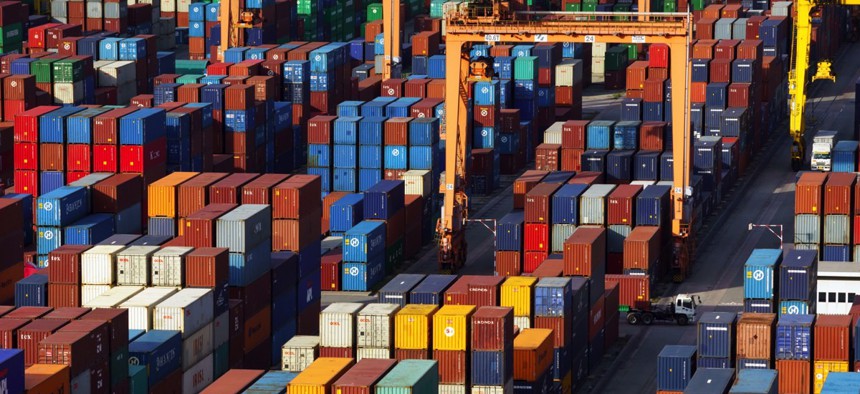The U.S. States That Rely The Most on Trade With China

A trade war with China would have the biggest economic impact on Tennessee, Washington, California and South Carolina.

Chinese president Xi Jinping’s visit to the US for a summit with president Donald Trump comes amidst tense times for free traders.
Trump’s bellicose talk about China’s “illegal” trading practices was central to his successful election campaign. So far, though, Trump’s fighting words haven’t translated into action. His policies have yet to diverge meaningfully from the previous administration. Still, trade relations with China, America’s largest trading partner, have rarely seemed so precarious.
A trade war with China would hurt some parts of the US much more than others. Consider each state’s trade in goods with China as a percentage of that state’s GDP. By this measure, states in the Southeast and West have the most to lose if trade barriers are imposed. In terms of political leanings, the pain would be evenly spread—five of the top 10 states most dependent on the China trade voted for Trump in the 2016 election.
Around $580 billion in goods, like car parts and mobile phones, were traded between the US and China last year. Trade in services between the two countries is much smaller, worth roughly $60 billion a year. Detailed data on state-level services trade with China isn’t available, so it is not included in our calculations—travel, education, and licensing fees make up the majority of this trade (pdf).
Perhaps unexpectedly, Tennessee is the most dependent on trade with China by some distance. Like the US as a whole, Tennessee runs a large trade deficit with China. The state imports $27 billion in goods, and only exports $2 billion. All told, 42 of the 50 US states import more goods than they export from China.
Washington, which ranks second in reliance on trade with China, is unusual in that it exports more than it imports to the country. This is primarily because China spends billions of dollars on Boeing aircraft, manufactured in Washington, every year.
So are Tennesseans unusually aggressive buyers of Chinese-made t-shirts and gadgets at the local Walmart? Not really. Most of Tennessee’s imports from China are parts or products that are used to manufacture other products. Tennessee is a key hub in global supply chains, and might struggle to maintain that position without cheap inputs from China.
This is true of the US in general. Dartmouth College economist Doug Irwin points out that over half of all imports, many of which come from China, are “intermediate components or raw materials” for production.
Xi will meet Trump in Florida, which is less dependent on trade with China than many other states. But given the incredibly intertwined nature of the American and Chinese economies—especially their politically sensitive manufacturing industries—importers, exporters, and local officials elsewhere in the country will be watching the leaders closely for any sign of rising tensions over trade.

Dan Kopf is a reporter for Quartz, where this article was originally published.
NEXT STORY: Public Authorities: Essential to Services Though Some States Question Oversight





